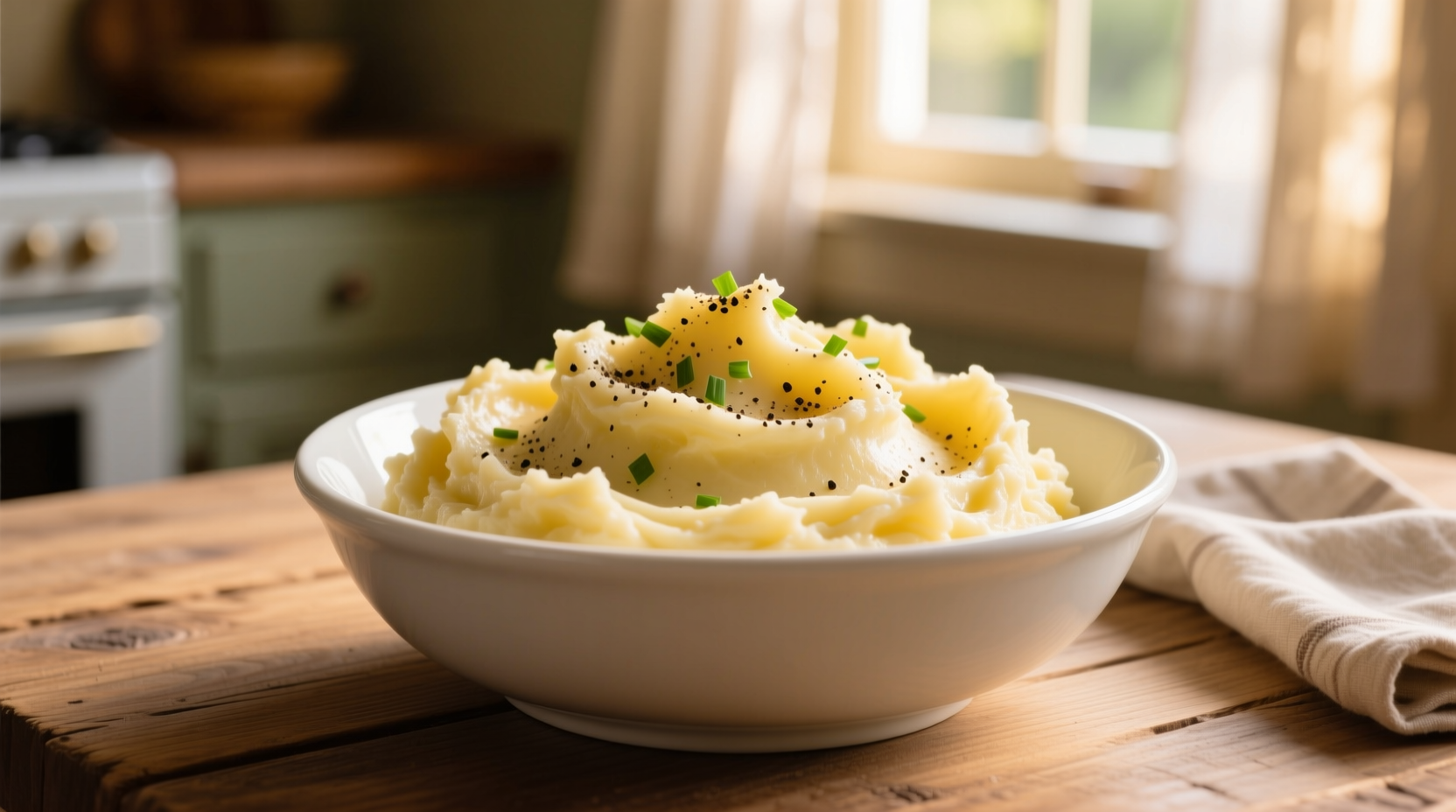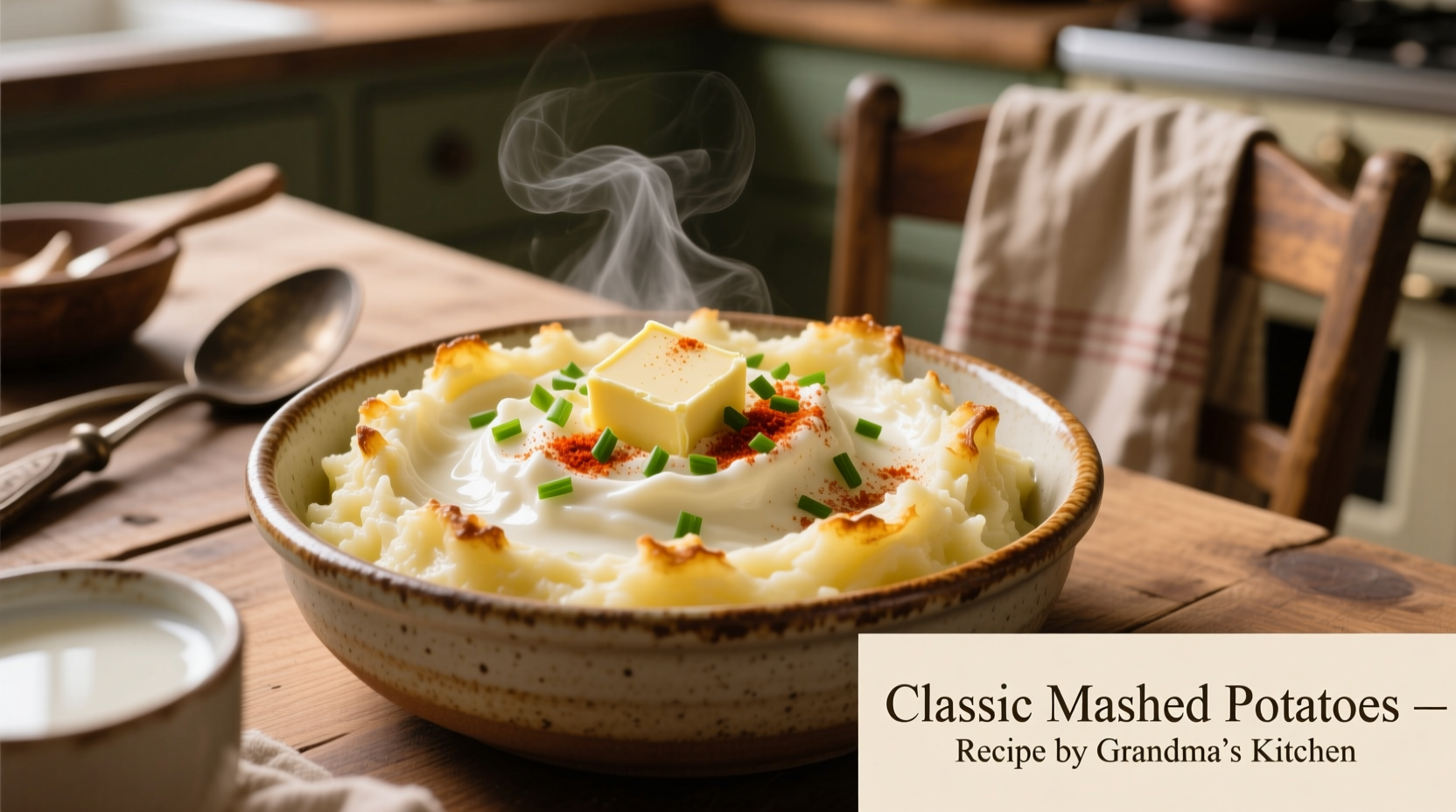The perfect mashed potatoes require Yukon Gold potatoes, room-temperature dairy, and a potato ricer for creamy texture without glueiness. This guide reveals professional techniques for consistently smooth, flavorful results with no lumps or watery consistency.
As a French-trained chef specializing in European culinary traditions, I've perfected mashed potatoes through decades of practice in Michelin-starred kitchens and home cooking demonstrations. Forget the bland, gluey versions you've suffered through—today you'll learn the precise techniques that transform this humble side dish into a showstopper.
The Potato Selection Science
Not all potatoes behave the same when mashed. Understanding starch content is crucial for texture control:
| Potato Variety | Starch Content | Best For | Texture Result |
|---|---|---|---|
| Yukon Gold | Medium | All-purpose | Creamy with slight fluffiness |
| Russet | High | Fluffy preparations | Light and airy (ideal for holiday meals) |
| Red Potatoes | Low | Chunky styles | Firm with distinct potato pieces |
According to agricultural research from the USDA Agricultural Research Service, Yukon Golds contain the ideal balance of moisture and starch for creamy yet structured mashed potatoes. Their naturally buttery flavor reduces the need for excessive added fats.
Equipment That Makes the Difference
Your tools dramatically impact texture. Through years of professional kitchen experience, I've observed these critical distinctions:
- Potato ricer - Creates cloud-like texture by extruding potatoes without rupturing starch cells
- Hand masher - Good for rustic preparations but requires careful technique
- Food processor - Avoid completely - generates excessive heat and starch activation causing gluey results
The American Chemical Society confirms that mechanical over-processing releases excess starch, creating that unpleasant gummy texture many home cooks experience. Gentle handling preserves ideal mouthfeel.
Step-by-Step Perfect Mashed Potatoes
Preparation Phase
Peel and cut potatoes into uniform 1.5-inch cubes. Consistent sizing ensures even cooking—larger pieces remain undercooked while smaller ones disintegrate. Soak cut potatoes in cold water for 15 minutes to remove excess surface starch.
Cooking Process
- Place potatoes in a large pot with cold, salted water (1 tablespoon kosher salt per quart)
- Bring to a gentle simmer (not rolling boil) over medium heat
- Cook 15-20 minutes until fork-tender but not falling apart
- Drain thoroughly in a colander—excess water causes watery potatoes
- Return potatoes to warm pot over low heat for 1 minute to evaporate residual moisture
Dairy Integration
This is where most recipes fail. Professional kitchens follow these precise steps:
- Warm dairy (milk, cream, or half-and-half) to room temperature before adding
- Use butter first—1/4 cup per 2 pounds potatoes—allowing it to coat each particle
- Add warmed dairy gradually while processing
- Season with salt after adding dairy for proper flavor distribution

Avoiding Common Pitfalls
Even experienced cooks encounter these issues. Here's how to prevent and fix them:
Watery Potatoes
Cause: Insufficient draining or cold dairy shocking the potatoes
Solution: Return to warm pot to evaporate excess moisture; add potato flakes sparingly if needed
Gluey Texture
Cause: Overworking with electric mixer or food processor
Solution: Start fresh—rice potatoes and incorporate dairy gently by hand
Lack of Flavor
Cause: Underseasoning or adding salt too early
Solution: Season in layers—salt cooking water, then adjust final seasoning after adding dairy
Flavor Variations Worth Trying
Once you've mastered the classic version, these professional variations elevate your dish:
- Garlic-Herb: Infuse dairy with roasted garlic and fresh thyme
- Truffle: Add 1/2 teaspoon truffle oil and grated Parmesan
- Dairy-Free: Substitute warm cashew cream for milk and olive oil for butter
- Loaded Bistro Style: Fold in crumbled bacon, chives, and shredded Gruyère
Timing for Perfect Results
Mashed potatoes perform best when served immediately. For holiday meal planning, follow this timeline:
- 3 days ahead: Peel and store potatoes submerged in cold water in refrigerator
- 1 day ahead: Cook potatoes and store in airtight container
- 1 hour before serving: Reheat potatoes gently with additional dairy
- 15 minutes before serving: Final seasoning and texture adjustment
According to culinary research from the USDA National Institute of Food and Agriculture, proper storage prevents oxidation while maintaining optimal starch structure for reheating.
Serving Suggestions That Impress
Pair your perfect mashed potatoes with these classic combinations:
- Roasted chicken with pan gravy
- Beef Wellington with red wine reduction
- Vegetarian mushroom Wellington
- Thanksgiving turkey with cranberry sauce
Create a well in the center of your serving dish and fill with additional melted butter—it's both practical and visually appealing.











 浙公网安备
33010002000092号
浙公网安备
33010002000092号 浙B2-20120091-4
浙B2-20120091-4